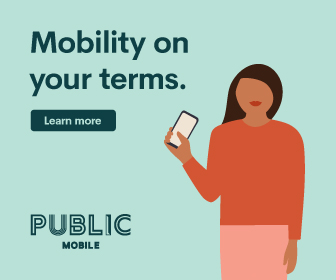If you’re in the process of buying a home, chances are you’ve heard about guarantors and co-signers. But what do these two terms mean, and how do they affect your mortgage in Canada? In this blog post, we’ll be looking at the difference between a guarantor and co-signer so that you can make an informed decision when it comes to securing financing for your home purchase.
What is a Guarantor?
A guarantor agrees to take full responsibility for paying off the loan if the borrower fails to do so. This can be a parent or other relative, but it does not necessarily have to be. The guarantor must have a good credit score, provide proof of income or assets, and sign an agreement with the lender stating that they are responsible for paying off the loan should the borrower fail to do so.
What You Need to Know About Getting a Mortgage in Canada with a Guarantor
Buying a home can be an intimidating process, and it can be even more daunting when you don’t have the funds for a down payment. Fortunately, in Canada, you can apply for a mortgage loan with the help of a guarantor. A guarantor is someone who provides security by agreeing to take on your debts if you are unable to pay. This type of mortgage loan is ideal for people who are just starting out or have had difficulty getting approved for other forms of financing due to their financial situation. Let’s discuss how this works and what it takes to get approved.
Who Can Be A Guarantor?
A guarantor can either be an individual or an organization, such as a bank or credit union. Generally speaking, the guarantor should have excellent credit and must agree to make payments on the loan in case you cannot make them yourself. The most common type of guarantors are parents, grandparents, or family members; however, there are some lenders that offer loans without any guarantee from another person or institution. If you are applying for a mortgage with a guarantor, the lender will typically require that both parties sign the paperwork and agree to all terms of the loan agreement.
What Are The Requirements?
To qualify for this type of mortgage loan in Canada, you must meet certain criteria set by the lender including having enough income to cover monthly payments and having good credit history (although not as important as other criteria). Lenders may also require proof of employment and/or assets that could be used as collateral if needed. Depending on the lender and your financial situation, additional requirements may apply. All documents submitted must be accurate and up-to-date since the lender will closely examine them before approving.
Getting approved for a mortgage loan in Canada with help from a guarantor is possible but there are certain factors that need to be taken into consideration first like income requirements, credit history checks, proof of employment/assets etc.. However, if you do get approved under these conditions then it can provide great benefits such as lower interest rates and access to higher amounts than would normally be available without one’s own assets as collateral. For those looking into buying property in Canada who don’t have enough money saved up yet but still want to purchase their dream home sooner rather than later then getting approved through this process may be the only real option available! With careful research and preparation though, it’s definitely possible so don’t give up hope just yet!
What is a Co-Signer?
A co-signer agrees to sign on to the loan application with the borrower, essentially taking joint responsibility for repaying the loan. Unlike with a guarantor, this person does not need to provide any proof of income or assets — only their signature on the loan application. However, they will still be held accountable if payments are missed by either party and their credit score will be affected accordingly.
Understanding Co-Signing for Mortgages in Canada
Blog Introduction: Are you looking to buy a home but don’t quite qualify for the mortgage on your own? You may be considering getting a co-signer, also known as an “accommodator,” to help you get approved. But what does that mean, exactly? Here’s everything you need to know about getting a mortgage in Canada with a co-signer.
The Role of the Co-Signer
A co-signer is someone who agrees to take on responsibility for your debt if you fail to make payments. In the case of mortgages, this means that if you become unable to make your monthly payments, the lender can come after your co-signer for payment. The lender will likely require that the person signing as your co-signer have good credit and sufficient income to cover the debt in question.
What Are My Rights and Responsibilities?
As the primary borrower, it’s important that you understand both your rights and responsibilities when taking out a loan with a co-signer. You’re responsible for making all payments on time, even if it’s difficult for you at times. Your co-signer is not responsible for any payments until you fail to make them yourself. For this reason, it’s important that you communicate openly with your co-signer about any potential issues and work together so that they never have to step in and pay your debt. It’s also important to understand that if someone is willing to sign as an accommodator on behalf of another borrower, they are doing so in good faith of repayment. Your co-signer should not be expected or obligated to pay off outstanding balances outside of their contractual agreement with the lender.
Benefits of Having a Co-Signer
Having a co-signer can be beneficial because it allows borrowers who might not otherwise qualify based on their credit score or income level access to financing options they otherwise would not have had access too. Furthermore, having someone vouch for them increases their chance of approval—which can be essential when attempting more complex financial transactions such as buying real estate property or other large investments. A word of caution however—any defaulted loan payments could have negative consequences for both parties involved since lenders will look at both parties’ credit ratings when approving future loans or lines of credit.
Getting approved for a mortgage can be tricky—especially without having established credit history or sufficient income levels. Taking out a loan with an accommodator (or “co-borrower”) can increase one’s chances of being approved by providing extra assurance from someone who has better established financial standing than themselves; however, it is important that both parties understand their rights and responsibilities before entering into such an agreement so they are aware of what could happen should payment become delinquent. Ultimately, having someone cosign can provide many benefits including increased chances at getting approved; however it should not be taken lightly since failure to keep up with payments could result in serious repercussions down the line—for both parties involved!
A guarantor is an individual who agrees to be responsible for your mortgage payments if you are unable to pay them. The guarantor must have sufficient income and assets to cover your payments if necessary. In addition, they must also meet certain credit requirements set by lenders.
Your guarantor must be someone who trusts that you will make your payments on time and has the financial resources to back up their guarantee. Generally, it needs to be either one of your parents, grandparents, siblings, spouse/common law partner, or another close relative.
A co-signer is someone who signs your mortgage loan application along with you so that they share responsibility for repayment of the loan. The co-signer must also meet certain credit requirements set by lenders and must have sufficient income and assets to cover your payments if necessary.
Like with guarantors, your co-signer typically needs to be someone who trusts that you will make your payments on time and has the financial resources to back up their guarantee; usually one of your parents, grandparents, siblings, spouse/common law partner, or another close relative.
Generally speaking there are no costs associated with having either a guarantor or co-signer sign onto your mortgage application since they are not financially responsible for any portion of the loan itself – just guaranteeing that it will get paid. However in some cases lenders may require additional fees or collateral as security against defaulting on the loan so it’s important to check with them beforehand in order to understand what might be required.
You can always contact us at Metric Mortgages Inc., where we specialize in helping home buyers find solutions that fit their specific needs when it comes to mortgages in Canada – including those involving guarantors and/or co-signers! We can provide more information about how this process works as well as assist with getting things started so feel free to reach out anytime!
















